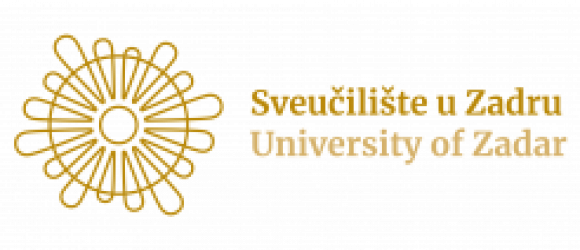The international conference Corpora in Language learning, Translation and Research aims to bring together specialists in the disciplines of corpus linguistics, specialized and literary translation, foreign language teaching, lexicography, LSP and NLP in order to share their insights on using corpora in language and translation education.
Over the past decade, we have witnessed that corpus and concordance have become a main topic in applied linguistics. The availability of multilingual corpora and processing tools provided language researchers with new opportunities for empirical analysis regarding examining and exemplifying language data.
Nevertheless, the application of empirical corpus-based learning is still limited in language and translation education and corpus driven pedagogy remains the tough task to date.
This conference aims to offer a more detailed account regarding corpus approaches in language learning, translating and research.
The conference is organized around three main research topics:
- Data-driven learning (DDL) in foreign language education
- Corpora as resources in specialized and literary translation
- Corpus driven and corpus based linguistic research that contributes to the advent of language corpora in language and translation education.
Papers can also be oriented towards topics like:
corpora in MT
corpus driven contrastive analysis
translator training
empirical translation research
corpus design and compilation
corpus-based translation pedagogy
SUBMISSIONS
We invite the submission of abstracts in English until May 1, 2023. Abstracts should be between 600 and 800 words and submitted via EasyChair. All papers must be original and cannot simultaneously be presented to another journal or conference.
IMPORTANT DATES
Abstract submission: May 1, 2023
Notification of acceptance: May 15, 2023
Early Registration: until June 1, 2023
Conference: August 23 – 24, 2023
Selected papers submission: October 15, 2023
CONFERENCE FEES
The conference will be held onsite and online.
Regular fee for onsite participation: 50 €
Doctoral students and non-presenters: 25 €
Registration fee for online participation: 20 €
Registration is mandatory both for online and onsite participation. The registration form with payment instructions will be available on the conference webpage. The web link will be sent to registered people a few days before the opening of the conference.
REFERENCES
Aston, Guy, ed. (2001a), Learning with corpora, Houston TX: Athelstan.
Baker, Mona (1996), “Corpus-Based Translation Studies: The Challenges that Lie Ahead”, in Somers, (ed.), Terminology, LSP and Translation: Studies in Language Engineering, in Honour of Juan C. Sager, Amsterdam-Philadelphia: John Benjamins, p. 175-186.
Baker, Mona (2000), “Towards a Methodology for Investigating the Style of a Literary Translator”, Target 12.2, p. 241-266. DOI : 10.1075/target.12.2.04bak
Baker, Mona (2004), “A Corpus-Based View of Similarity and Difference in Translation”, International Journal of Corpus Linguistics 9.2, p. 167-193.DOI : 10.1075/ijcl.9.2.02bak
Bowker, Lynne (1999), “Exploring the potential of corpora for raising language awareness in student translators”. Language Awareness 8 (3), p. 160–173.
Botley, Simon Philip, McEnery, Anthony Mark, Wilson, Andrew, (eds. 2000), Multilingual Corpora in Teaching and Research, Amsterdam & Atlanta: Rodopi. DOI: 10.1163/9789004485204
Bowker, Lynne, Pearson, Jennifer (2002), Working with Specialized Language. A Practical Guide to using Corpora, London & New York: Routledge. DOI : 10.4324/9780203469255
Camargo, Diva C. (2005), Stylistic Patterns of Translators: A Study of Similarities and Differences in Corpora of Literary, Specialized and Sworn Translations, São José do Rio Preto: Department of Modern Languages. UNESP [Privatdozent Thesis.]
Cook, Guy (2010), Translation in Language Teaching, Oxford: OUP.
Frankenberg-Garcia, Ana. (2012a) Learners’ use of corpus examples. International Journal of Lexicography, 25(3): 273–296.
Frankenberg-Garcia, Ana. (2012b) Raising teachers’ awareness of corpora. Language Teaching, 45(4): 475–489.
Granger, Sylviane; Lerot, Jacques; Petch-Tyoson, Stephanie (eds., 2003), Corpus-Based Approaches to Constrastive Linguistics and Translation Studies, Amsterdam & New York: Rodopi.
Hatim, Basil (2001), Teaching and Researching Translation, Harlow: Longman. DOI: 10.4324/9781315832906
Hunston, Susan (2002), Corpora in Applied Linguistics. Cambridge University Press, Cambridge.
Johns, Tim; King, Philip (eds.) (1991), Classroom Concordancing, ELR Journal, 4 (Special Issue), Birmingham: University of Birmingham.
Laviosa, Sara (2008), “Discovery and Justification Procedures in the Corpus-Based Translation Classroom”, Translation Challenges: From Training to Profession, Hammamet, Tunisia.
Sinclair, John (ed.) (2004), How to Use Corpora in Language Teaching. John Benjamins.
Vyatkina, Nina (2016), Data- driven learning for beginners: The case of German verb- preposition collocations. ReCALL, 28(2), 207–226.
Wichmann, Anne; Fligelstone, Steven (1997), Teaching and Language Corpora. Routledge. https://doi.org/10.4324/9781315842677
Yao, Gang. (2019), Vocabulary learning through data- driven learning in the context of Spanish as a foreign language. Research in Corpus Linguistics, 7, 18–46.

